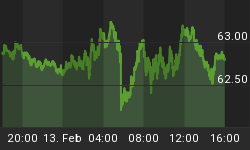Bank of England's chief economist Andy Haldane joined the worry over robots parade. Eighty Million US Jobs at Risk from automation says Haldane.
Speaking at the Trades Union Congress in London, Bank of England chief economist said 80 million U.S. and 15 million U.K. jobs are in danger of being taken over by robots.
Haldane added the jobs that are most at risk from automation tend to have the lowest wage. "In other words, technology could act like a regressive income tax on the unskilled. It could further widen income disparities," he said.
"Yet the smarter machines become, the greater the likelihood that the space remaining for uniquely-human skills could shrink further," Haldane said. He said what was previously unthinkable even a decade ago is now reality, like a driverless car.
Being a central banker, Haldane further pointed out that the narrowing of slack is having less impact on wages than in the past. "That might arise because technology has made it easier and cheaper than ever before to substitute labor for capital, man for machine," he said.
Jobs at Risk

"Regressive Tax on the Unskilled"
The idea that technology is a tax on anyone is ridiculous. Technology always has, and always will enhance quality of life, with the exception of war-mongering technology.
What is clearly a regressive tax on the poor is central banks' efforts to force inflation in a deflationary world.
















